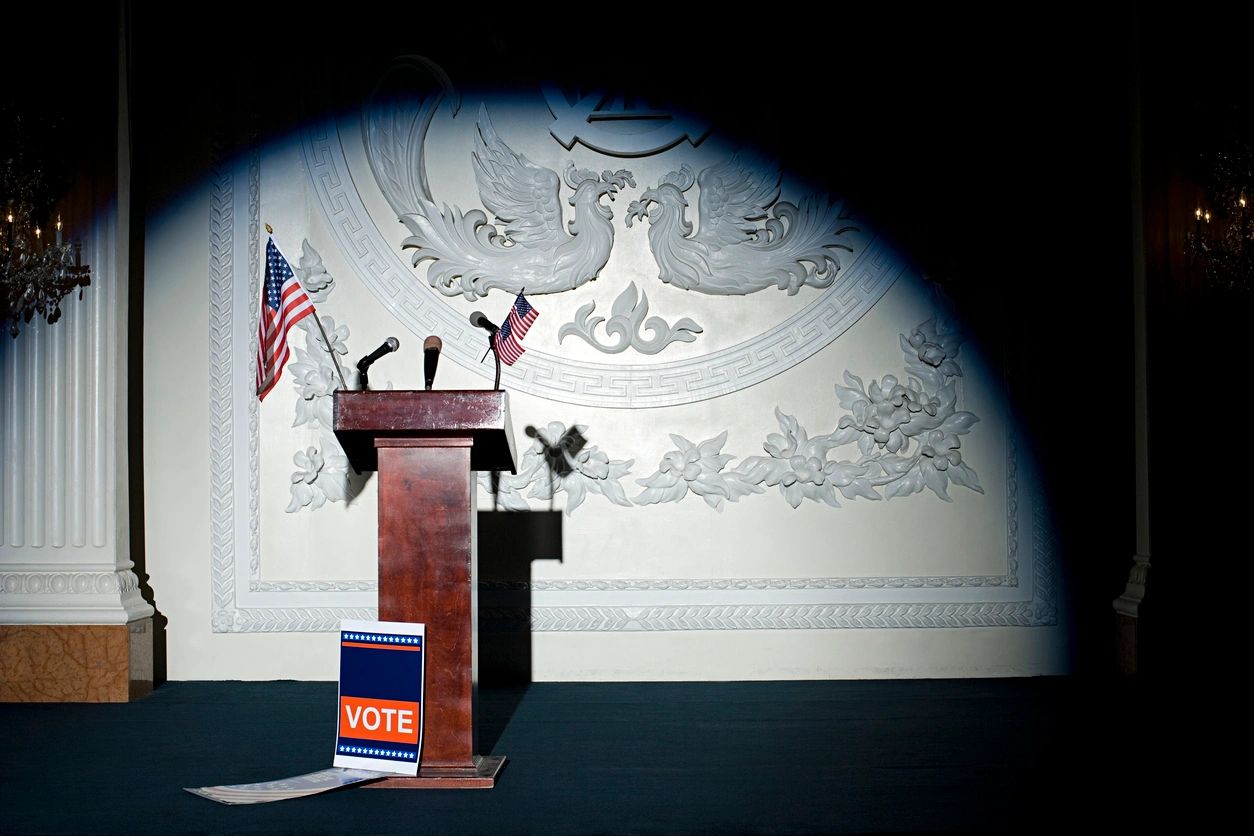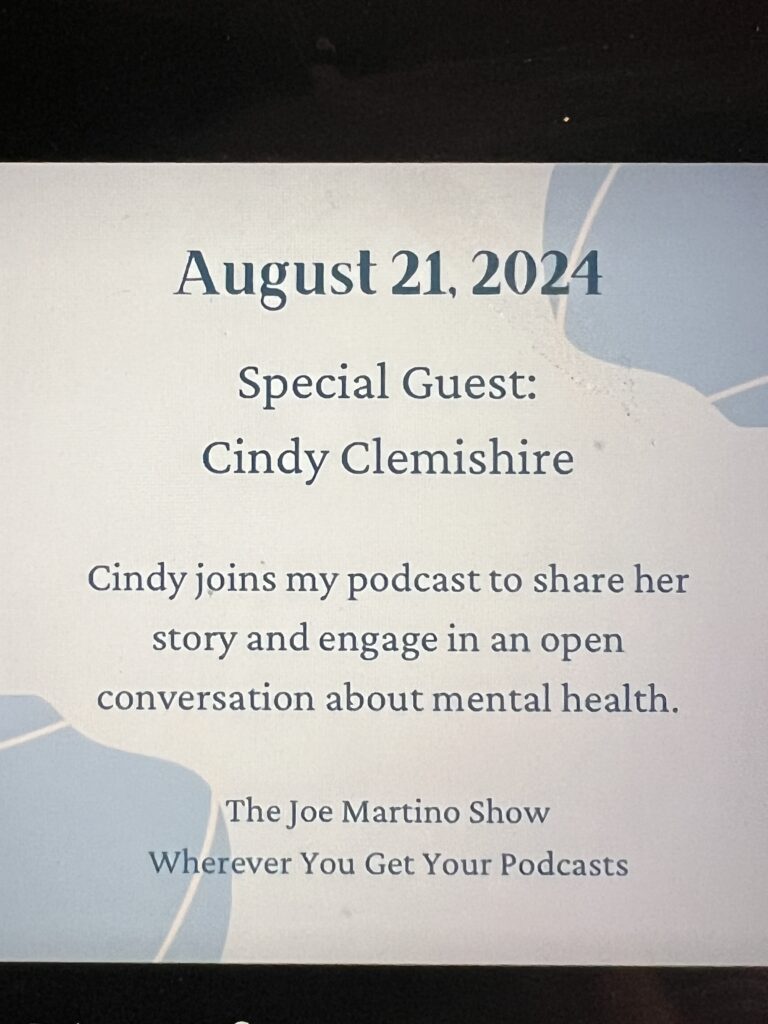Election season can bring a wave of emotions, often causing anxiety as people anticipate the outcomes and consider their potential impact on daily life. The heightened media coverage, debates, social media conversations, and discussions around complex issues can become overwhelming, leading to what experts call “election anxiety.”

And now, on the day of the election, we’re being told we may not know for days who won. I can’t tell you how many people I have met who have told me about their anxiety about what might come after the election.
Both sides are telling us that if the other side wins, democracy as we know it will be over. Many people have concerns about the policies that will come after the election. As a former president famously said, “Elections have consequences.”
All of that to say, if you’re feeling stressed, you’re not alone. Many people experience increased anxiety during elections. Let’s talk about practical ways to manage that anxiety, helping you stay grounded and maintain well-being regardless of the election outcome. It’s important to remember that situations don’t create anxiety; our beliefs about those situations create our anxiety. One of the best ways to manage anxiety is to engage in activities that are strategically utilized purposely.
Here are some effective strategies to help navigate this tense time.
1. Understand What Triggers Your Anxiety
The first step in managing election anxiety is recognizing the source of that anxiety. Beliefs create anxiety. Are you concerned about policy changes that may affect your community or family? Or does the general media atmosphere around the election feel overwhelming?
Common triggers may include:
- Constant news updates and push notifications
- Social media debates that become heated
- Conversations with friends or family with differing viewpoints
- Uncertainty around future policy changes that might impact your life
Identifying triggers is helpful because it gives you a foundation for creating boundaries and implementing strategies for mental peace.
2. Limit Media Consumption
It’s natural to want to stay informed, but consuming election news 24/7 can quickly lead to burnout. Studies show that excessive news exposure can increase stress and anxiety. A useful approach to staying informed without feeling overwhelmed is to set specific times to check the news.
Practical tips:
- Set time limits on your phone or computer for news apps.
- Avoid checking the news first thing in the morning or right before bed, as it can set a negative tone for your day or interfere with sleep.
- Stick to reputable sources to avoid sensationalized or overly negative content.
Consider taking a complete break from the news or social media platforms on weekends or designated “digital detox” days to reset mentally.
3. Engage in Relaxation Techniques
Incorporating relaxation techniques into your routine during election season can be incredibly beneficial. These methods not only help reduce anxiety but also improve overall mental well-being.
Some popular relaxation methods include:
- Deep breathing exercises: Practicing slow, controlled breathing can help activate your body’s relaxation response, reducing feelings of tension and stress.
- Meditation: Apps like Calm or Headspace offer guided meditations designed to ease anxiety.
- Progressive muscle relaxation: This involves tensing and then relaxing each muscle group in the body, which can release physical tension.
- Yoga and stretching: Both can relieve tension stored in the body and provide mental calm.
These methods help ground you in the present moment, reducing the power of election-related worries.
4. Focus on Self-Care and Routine
A strong daily routine can be a powerful stabilizing force. When life feels chaotic, routines provide structure, helping us feel more in control. Good self-care includes:
- Eating balanced meals to maintain energy and avoid blood sugar fluctuations.
- Getting regular exercise, which releases endorphins, reducing stress levels naturally.
- Sticking to a sleep schedule: Quality sleep is essential for mental resilience and emotional regulation.
- Engaging in hobbies: Whether painting, reading, cooking, or gardening, doing something you enjoy can help distract you from stress and re-center your mind.
Creating a routine with these activities can help maintain balance, even when external factors feel uncertain.
5. Practice Mindful Consumption of Social Media
Social media platforms are often a source of anxiety during election periods. While they allow people to share opinions and stay connected, they can also become overwhelming. People frequently share emotionally charged content or negative news, amplifying stress.
To manage social media consumption effectively:
- Curate your feed: Unfollow or mute accounts that trigger anxiety or consistently post inflammatory content.
- Set time limits: Limiting time on platforms like Twitter or Facebook can help you maintain mental boundaries.
- Engage thoughtfully: Avoid reading comments or engaging in online arguments. Staying away from heated discussions can prevent unnecessary stress.
- Consider taking a break: If social media feels too much to handle, a temporary break or “social media detox” may help create a mental buffer.
By practicing mindful engagement, you can reduce the stress that often comes from constant social media interaction.
6. Focus on the Present Moment
Anxiety often arises from worrying about the future. Election anxiety, in particular, involves fears about potential changes, but many of these scenarios are hypothetical. Focusing on the present moment is a key way to reduce anxiety about the unknown.
Some practical ways to practice mindfulness include:
- Mindfulness exercises: These can be as simple as focusing on your breath for a few minutes, bringing awareness to your surroundings, or grounding yourself by noticing physical sensations.
- Gratitude journaling: Write down things you’re grateful for each day to help shift your focus away from worries and onto what’s positive in your life.
- 5-4-3-2-1 grounding exercise: Identify 5 things you can see, 4 you can touch, 3 you can hear, 2 you can smell, and 1 you can taste. This technique can bring you back to the present.
Mindfulness techniques can help you stay connected to the “now” and reduce the intensity of future-oriented fears.
7. Engage in Meaningful Conversations
Election anxiety can sometimes feel isolating. Engaging in respectful and supportive conversations with people you trust can provide relief. This can be a friend, family member, or support group where people can discuss their concerns without judgment.
While discussing the election, set some boundaries for respectful dialogue:
- Listen actively to understand different perspectives without interrupting.
- Focus on shared values and find common ground, even if your views differ.
- Agree to disagree if discussions become tense, and respectfully shift to a different topic.
Having a sense of connection and support can help mitigate feelings of isolation and anxiety.
8. Take Action in Positive Ways
If you feel empowered by taking action, look for constructive ways to channel your energy. Instead of dwelling on “what ifs,” think about things you can control. Consider:
- Volunteering for causes or organizations you believe in.
- Educating yourself further on issues you care about, understanding both sides to feel more informed and less fearful.
- Voting: One of the most direct ways to influence outcomes is by participating in the democratic process.
Channeling your concerns into positive action not only helps you feel proactive but can also foster a sense of purpose.
9. Seek Professional Support
If election anxiety becomes unmanageable, consider seeking help from a mental health professional. Therapists can provide coping tools tailored to your specific concerns and help you work through intense feelings of stress. Cognitive-behavioral therapy (CBT) and mindfulness-based therapy are both effective for anxiety management.
Final Thoughts
While election anxiety is common, remember that it doesn’t have to take over your life. You can regain a sense of balance and peace by implementing strategies like limiting media consumption, practicing mindfulness, and focusing on self-care.
Elections come and go, and while their outcomes may influence certain aspects of life, your well-being is within your control. Remember, taking small steps toward reducing anxiety can make a big difference, allowing you to navigate this time with resilience and clarity.




